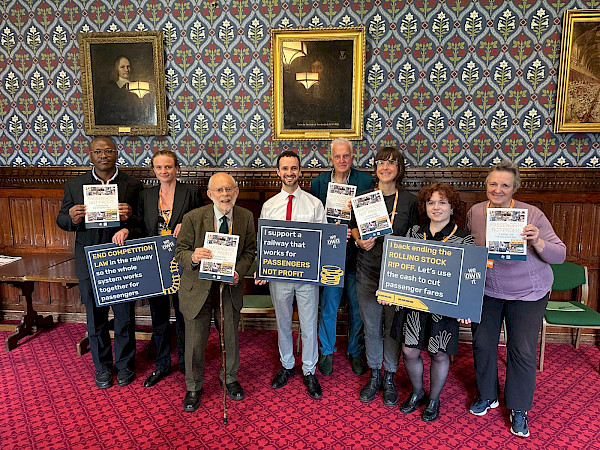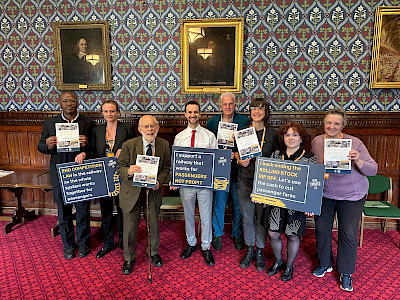
5 Nov 2025
The government’s new Railways Bill, tabled today in the House of Commons, fails to grasp the scale of the ambition required to fix the crisis caused in our railway by 30 years of privatisation and underinvestment.
Rather than think outside the privatisation box, the government chose to maintain key elements of our current failing system, including in rolling stock, passenger involvement in decision making and high fares. This sets Great British Railways up to fail and passengers to be disappointed.
Here are three ways that the government's Railways Bill fails to deliver the key changes needed to make sure that our railway begins to deliver for passengers, not private shareholders:
The Bill maintains private rolling stock
Private rolling stock companies extracted at least £410 million in profits in 2023, and at least £360 million a year for the last decade. The government could cut passenger fares by 4.1% from this source alone.
The Railways Bill could have established Great British Trains to begin the process of gradually bringing rolling stock into public ownership as current contracts end and current stock goes out of commission, in much the same way as they are gradually nationalising Train Operating Companies.
Instead, the government is embedding the role of private rolling stock companies and guaranteeing their ability to continue to extract huge profits from passengers.
The Bill fails to give passengers a real voice in GBR
The government is right to recognise that giving passengers a voice in how our railway is run will play an important role in making sure it delivers for us.
But the government's proposal of expanding Transport Focus’s role into regulation and advising misses a trick. Passengers want a real say. Like in Paris Water, where households have a seat on the board, with voting rights, passengers need real representation on the board of GBR to ensure that passengers’ issues, such as high fares, accessibility and ownership, are at the heart of the day-to-day operation of GBR.
Britain's trains will remain the most expensive to use in Europe
Finally, high fares are every passenger's top issue. Our railway is among the most expensive to use in Europe. The Railways Bill fails to tackle this issue head-on.
The Secretary of State and GBR should have a duty, set out in primary legislation, to begin immediately bringing down rail fares. GBR should have a clear, long-term goal of bringing Britain’s rail fares in line with comparable European countries like Germany, where, per kilometre, average fares are 64% lower than in the UK.
Investment is needed to deliver lower fares and also more capacity - but investing to make our railway successful pays for itself. Every £1 invested in rail creates £2.50 in economic benefits.

